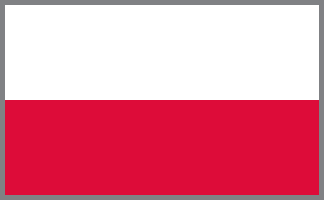mgr Małgorzata Bereś-Łapińska | Child psychologist
The doctor provides treatment in the following languages: Polish

Dostępne formy wizyt: stationary


Experience
Approach: Cognitive-behavioural. Body and movement work.
Specialisation: Master’s degree in psychology with pedagogical preparation, certified Sensory Integration Therapist, Choreotherapy Teacher with elements of art therapy and Social Skills Trainer 1st and 2nd degree.
Experience: Her previous professional experience was gained at the Neuropsychiatry Centre Neuromed (where she also conducted classes using choreotherapy with children aged 7-10 years, mainly with psychomotor hyperactivity), in kindergartens and at school. She cooperates with psychological-educational counselling centres and other specialists.
Treatment
Treatment: Works with children from 3-14/15 years of age. For the first initial consultation, she invites the parents themselves, for a developmental interview. During the meeting she explains the further plan of action. Depending on the needs, the situation, sometimes it is enough to give some advice, parenting tips or there is a need for further consultations and in the meantime medical examinations or to meet with further specialists. She sees the young person as a whole. Her work therefore involves looking at both the child’s difficulties and growth conditions, the child’s potential, taking into account genetic, cultural or social factors. Together with the Parents, she looks for the causes of the child’s behaviour and possible ways to change it and/or soothe the emotions of the Parent and Child. She adheres to the principle that it is the Parent who is the expert on their child, while she can help them to discover what has not yet been discovered, to get to know the child from another side.
In her work, she uses cognitive-behavioural techniques, but not only. She also draws on the systemic movement, Lowen bioenergetics and other approaches. She is close to the NVC method (Non-Violent Communication), self-determination theory (Deci & Ryan) and body and movement work, including human neurophysiology. She supports parents in increasing their parenting skills, discusses developmental norms, reports observed difficulties and opportunities for change, as well as the need for consultation with other professionals. But most of all, she provides an opportunity to talk and listen to both her young patients and their Parents. For children, she helps to increase their skills in naming, recognising and expressing their own emotions and regulating their tensions, as well as in dealing with distorted beliefs, conflicts, difficult social situations and establishing relationships.
Training and scientific works
Training and academic work: She systematically invests in his personal and professional development by attending courses and trainings.
Other: Is guided in her work by the ethics of the psychological profession. Participates in peer supervision.
